Zochrot held a protest against the Nakba law recently passed by the Knesset, which prevents learning about the Nakba in Israel. This anti-democratic law, which commands citizens: "do not remember," is unprecedented in the world.
During the action a two-sided sign was displayed in public. On one side of the sign was written in German:
Es ist nicht erlaubt am tag der staats grundung zu trauern.
Israel 2011
The English translation reads: It is forbidden to mourn on the day of the state’s founding.
This is an almost exact quote from the Nakba law and expresses its essence.
On the other side of the sign is a photograph of Abu Jamal, a refugee from the village of al-Qabou, holding the key to his house from which he was deported by Israel during the Nakba (photographed by Mati Milstein).
The inspiration for this action came from the project "Places of Remembrance" in Berlin by the artists Renata Stih and Frieder Schnock. As you can see, in that project dozens of double-sided signs were exhibited. On one side of the sign is a simple image, and on the other a short statement from one of the racist laws enacted at the beginning of the Nazi regime in Germany. For example, a sign with an image of a cat says on its other side: "Jews are no longer allowed to have household pets. 15 February 1942." These laws were an important foundation on which the Holocaust and other horrors were made possible only a few years later.
Zochrot’s action sought to encourage a public discussion about the danger posed by anti-democratic and racist laws to the society in which we live. The memory of what happened to the Jews in Germany a few decades ago should teach us an important lesson, despite (or perhaps because of!) the shudder experienced by every Israeli when this history is brought up.
Twenty people took part in the action; some of them were wearing black shirts with "Remembering (Zochrot) the Nakba". The sign was placed while many bystanders celebrated with loud music coming from Rabin Square. One of the groups’ members read the law in German. Others shared the thoughts it evokes in them. Someone suggested that our public action reminds her of psychoanalysis: amidst the ruckus of celebrations surrounding us we try to touch the sick part of our society and heal it. This is because in psychoanalysis we also try to isolate one sick part within oneself and amidst all the noise of awareness in our mind we try to heal it. Another participant told about the learning and profound changes she experienced at Zochrot. She comes from a very Zionist home and thought it would be impossible for her to even get near the contents Zochrot deals with: the Nakba and the right of return.
Passers-by were interested to know what we were doing and received a brochure with an explanation. Some reacted angrily and others moved on.
Later we posted the sign just inside the area celebrating in Rabin Square and the responses received were much angrier. Loud arguments developed in which we heard a flood of everything we have had to listen to from age zero: the Arabs started the war; my family was killed in the Holocaust so the Arabs deserved what we did to them; and other statements that are far too unpleasant to be repeated.
Someone ripped the picture of the refugee from the sign. The Police who stood around were interested but did not intervene. On the way back to the office I placed the sign on one of the roadblock entrances to the festivities with a smile and explained that we wish to remind people not to mourn the Nakba this evening. We wrote the German to make it clear and strict. Some youths wished us different deaths so we left for the office immediately.
At the exit, about five minutes later, the police was waiting for us and asked about our actions. We explained that we were on the way home. They asked us about what we did and which brochures we distributed. I invited them to the office to see. A number of policemen entered and the officer read the brochure carefully. He also took my driver's license and inquired about me on his radio. After a few minutes he let us go. On the way home we passed by the people celebrating on the square.
Report: Eitan Bronstein
English editing: Teodora Todorova
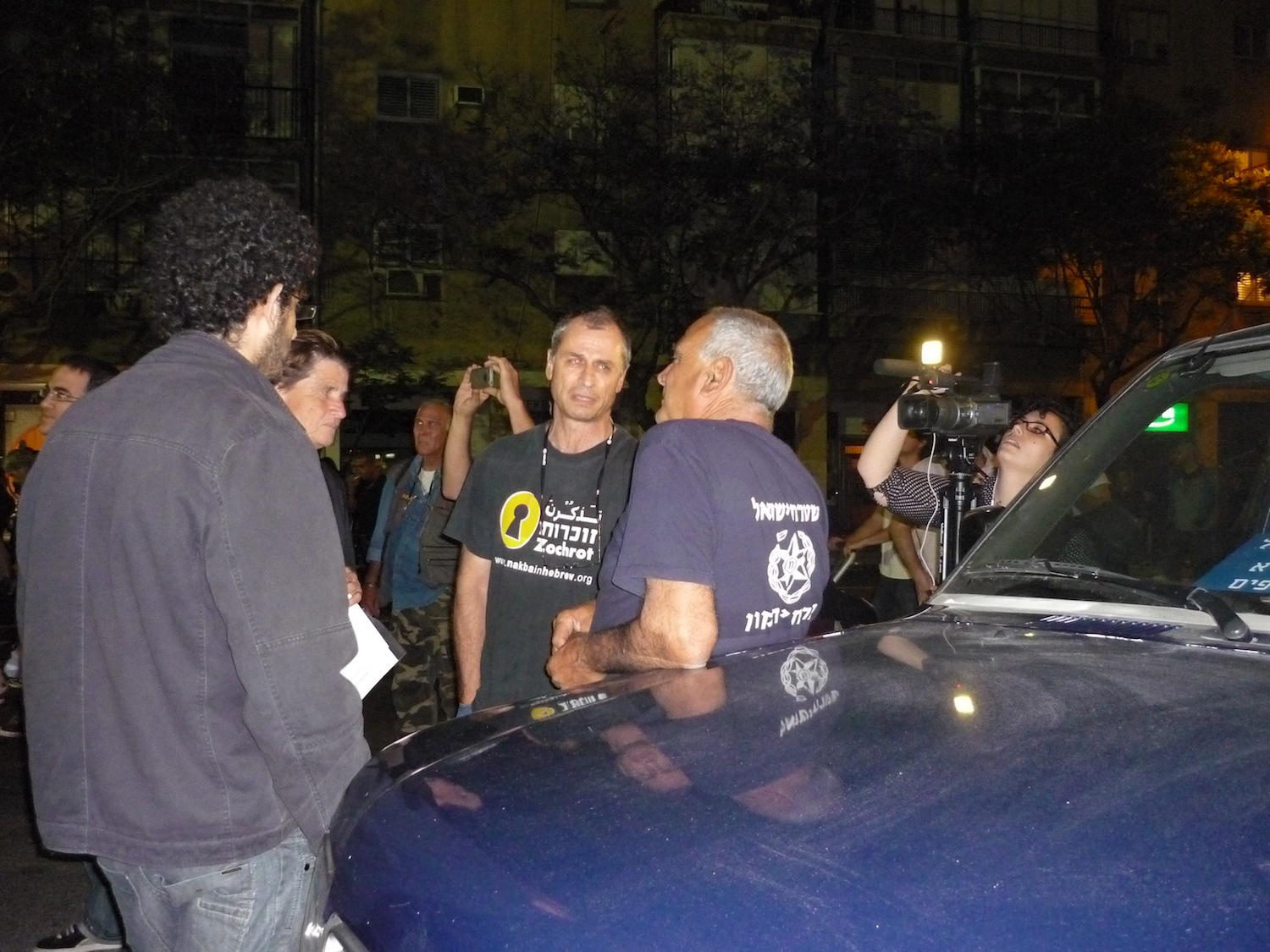
Nakba law protest TLV independence day 2011 (3)
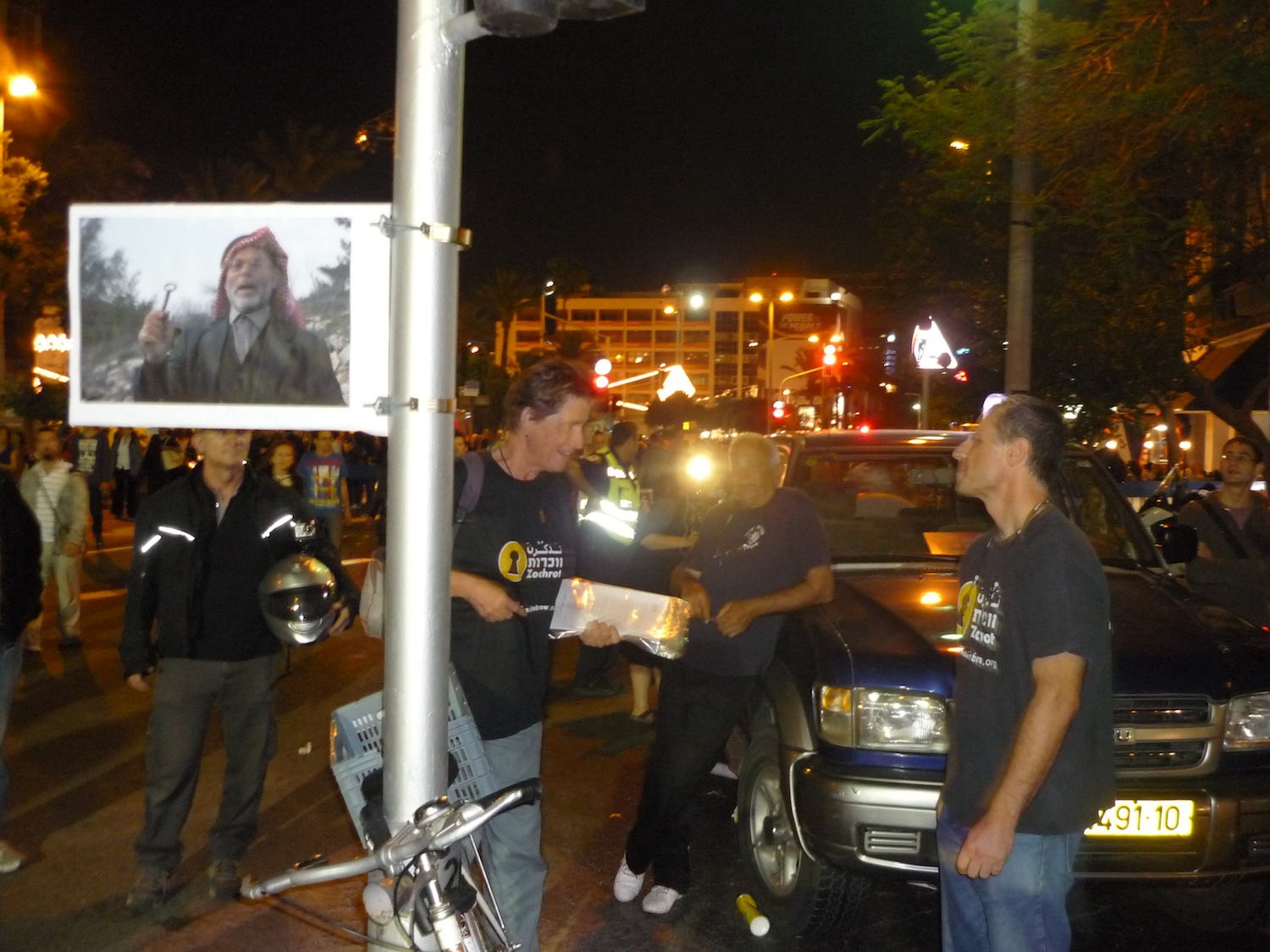
Nakba law protest TLV independence day 2011 (2)
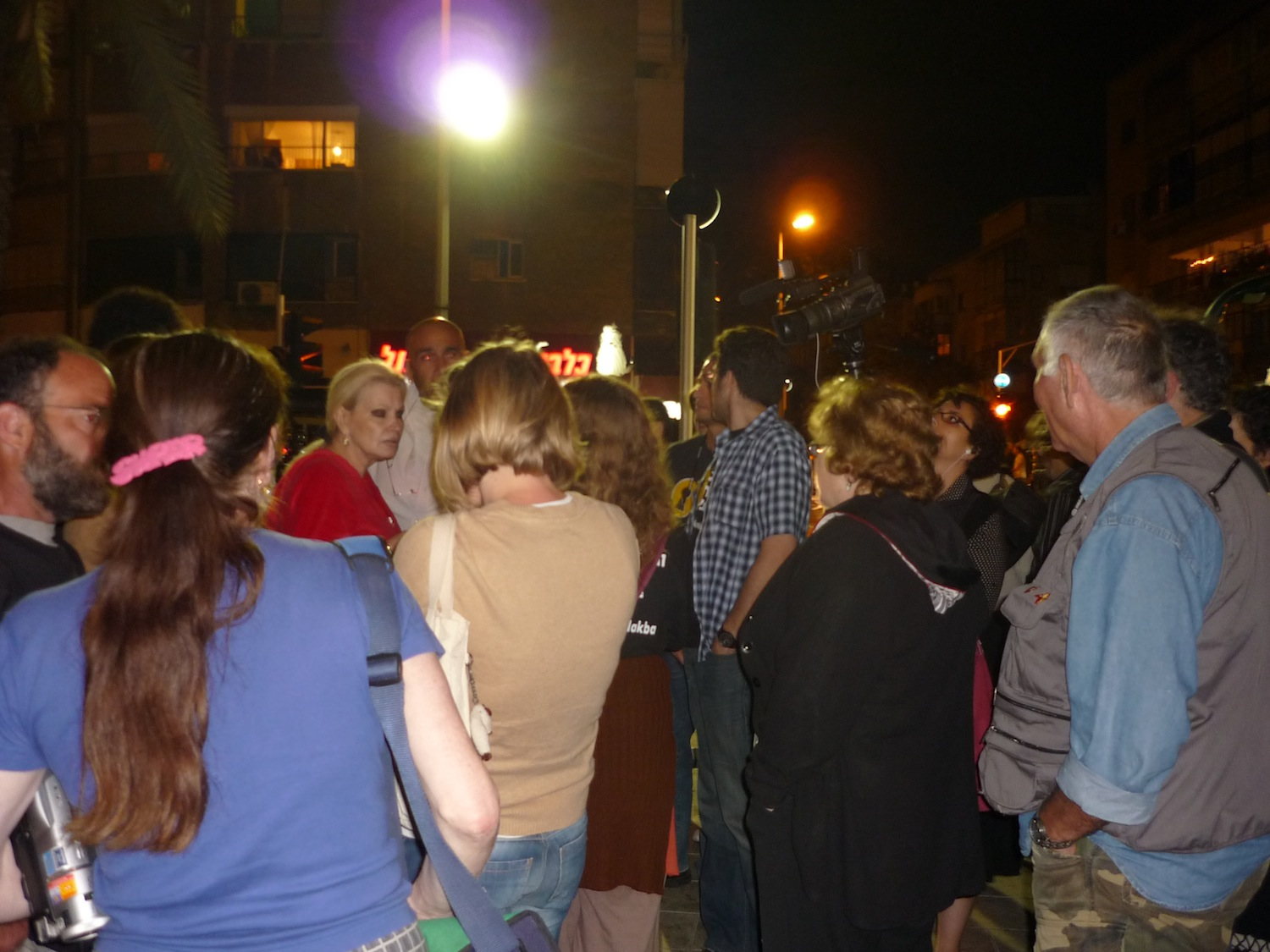
Nakba law protest TLV independence day 2011 (6)
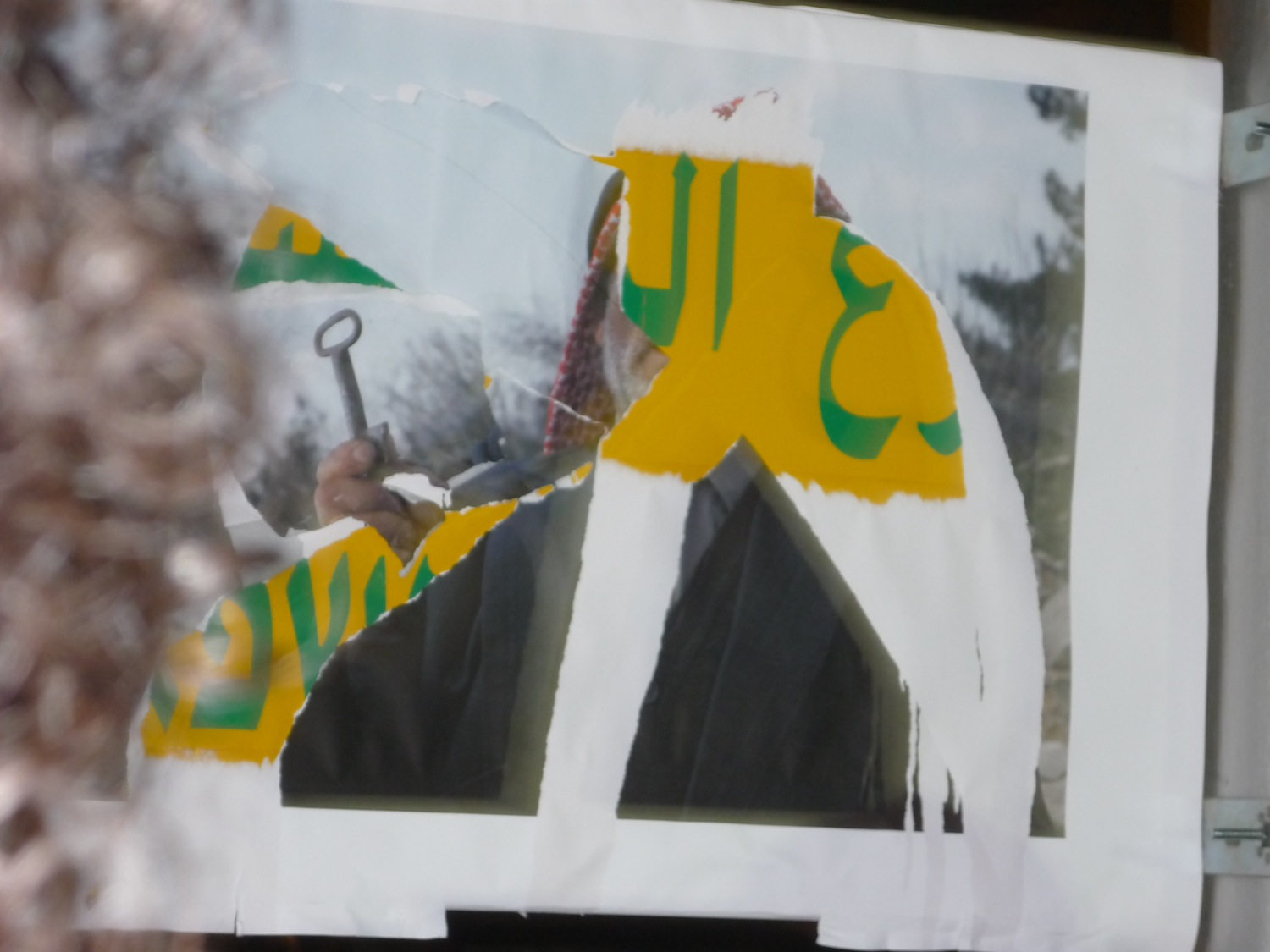
Nakba law protest TLV independence day 2011 (8)
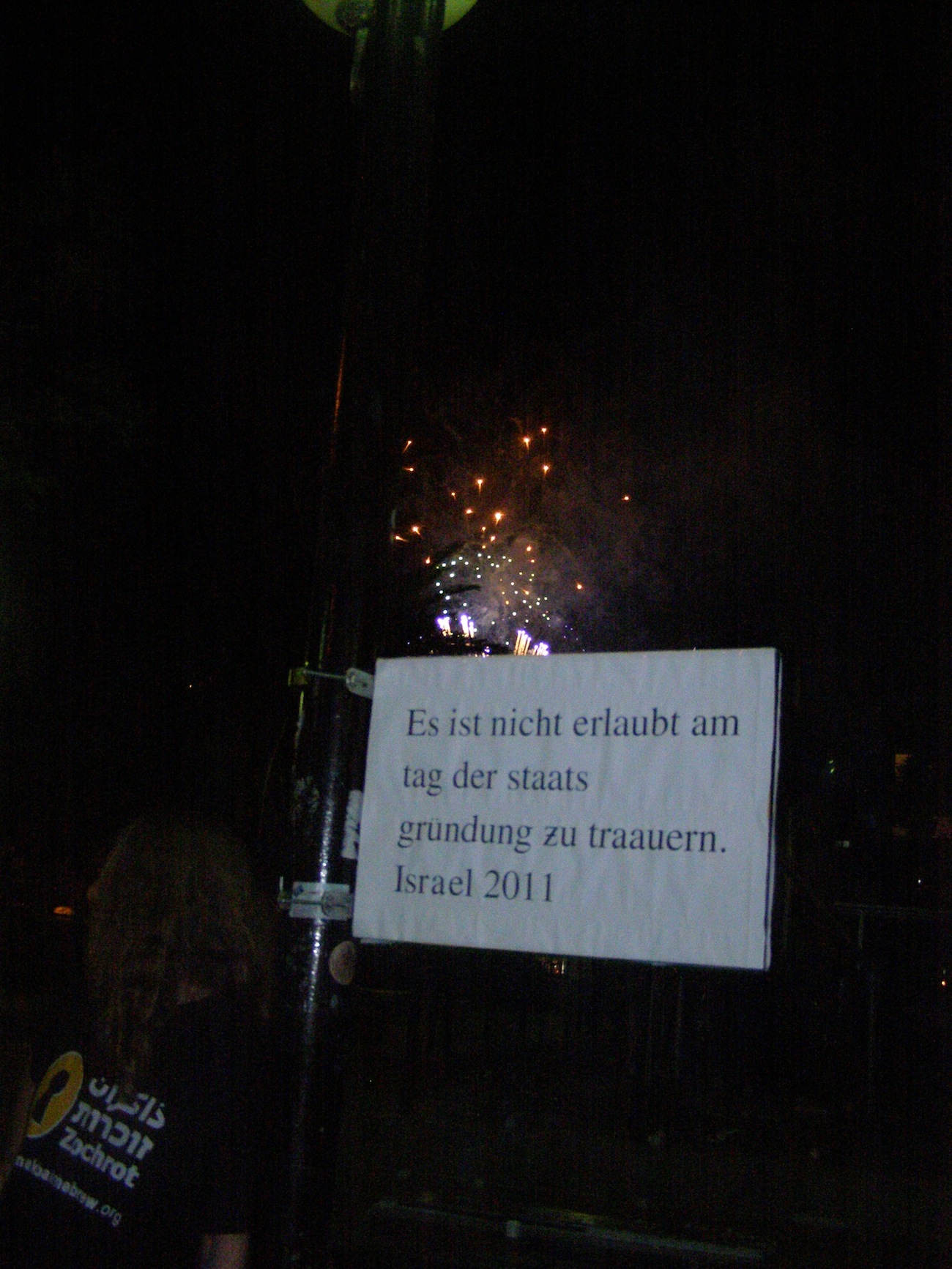
Nakba law protest TLV independence day 2011 (10)
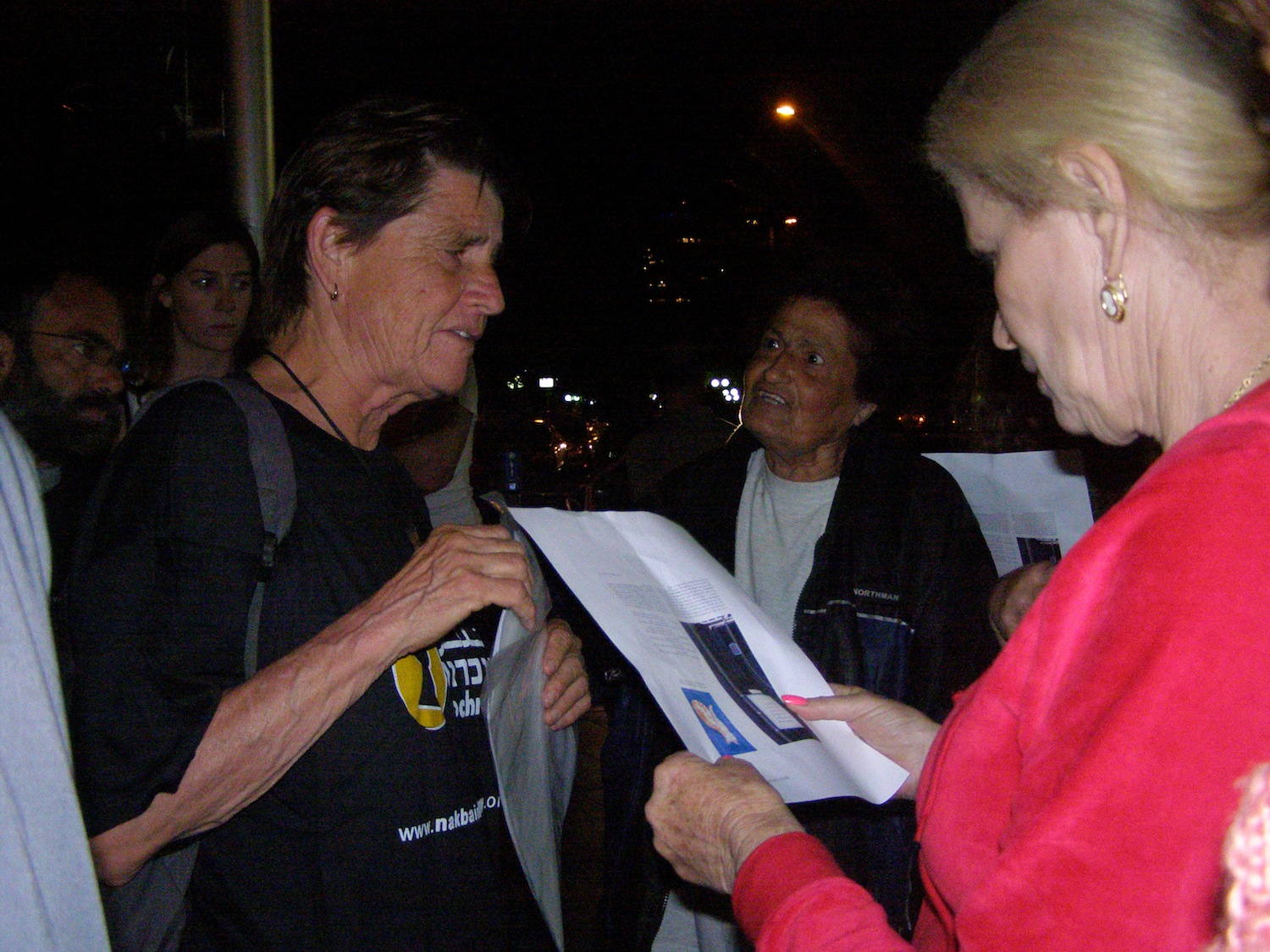
Nakba law protest TLV independence day 2011 (16)
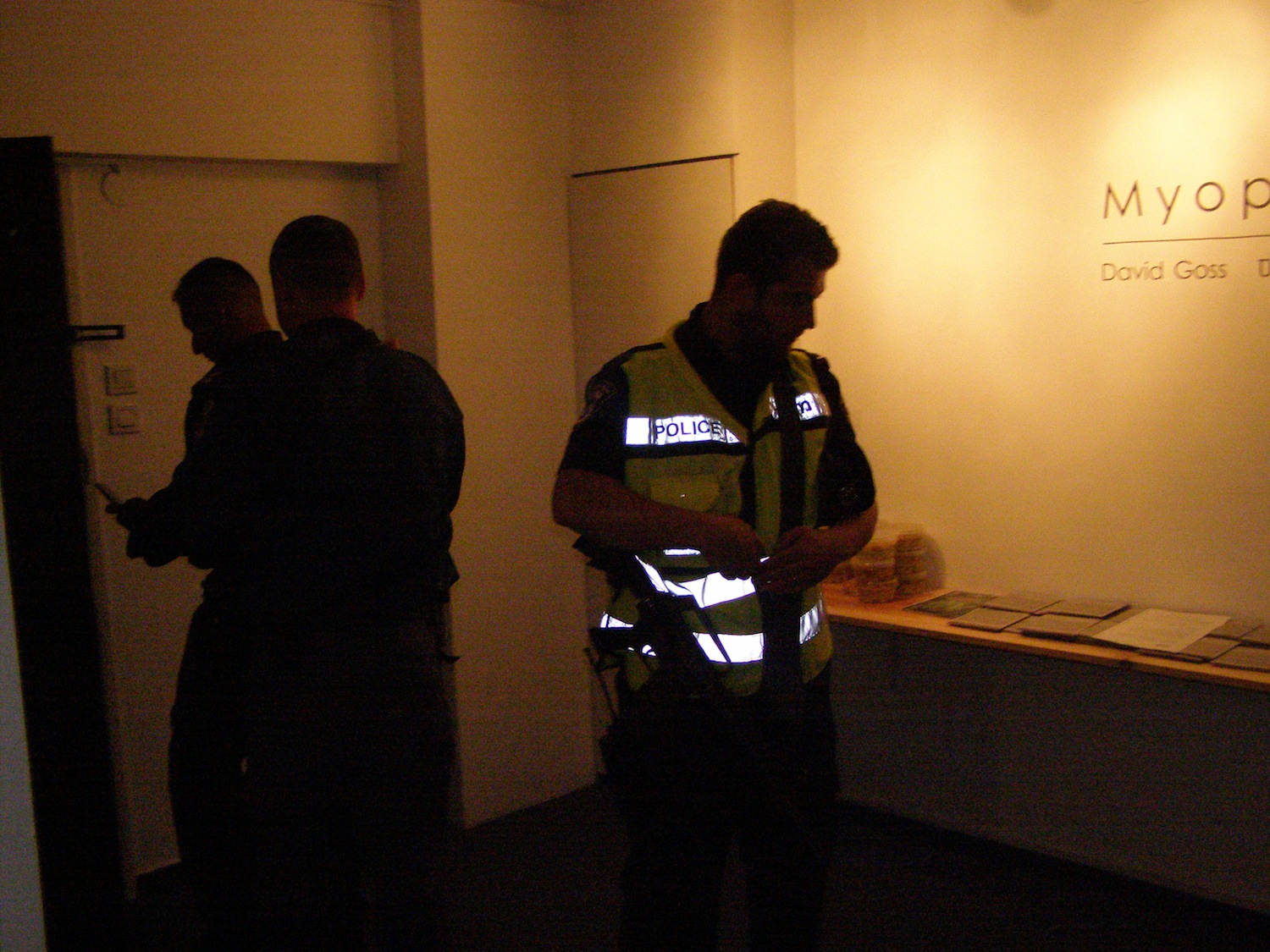
Nakba law protest TLV independence day 2011 (17)
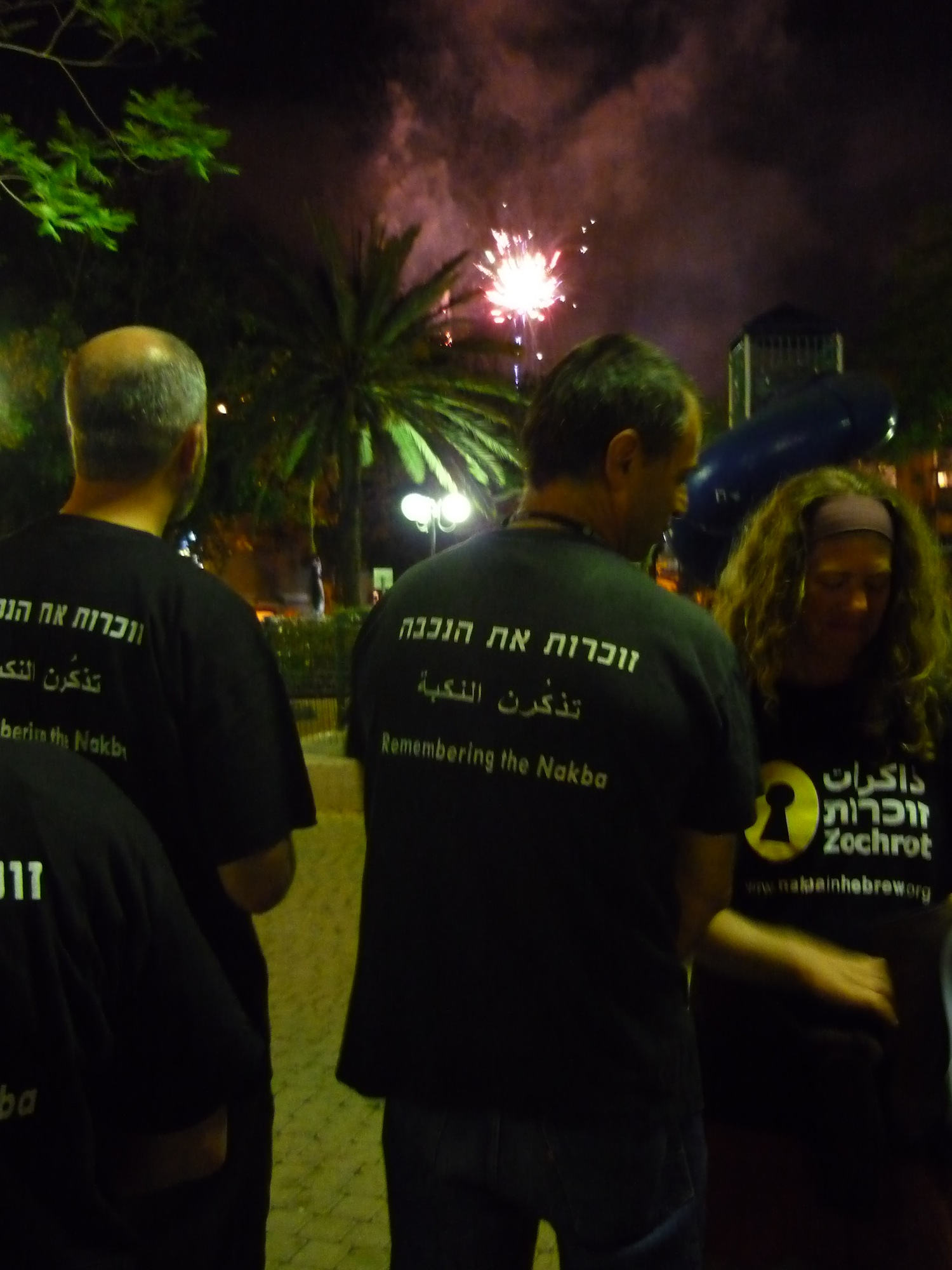
Nakba law protest TLV independence day 2011 (28)
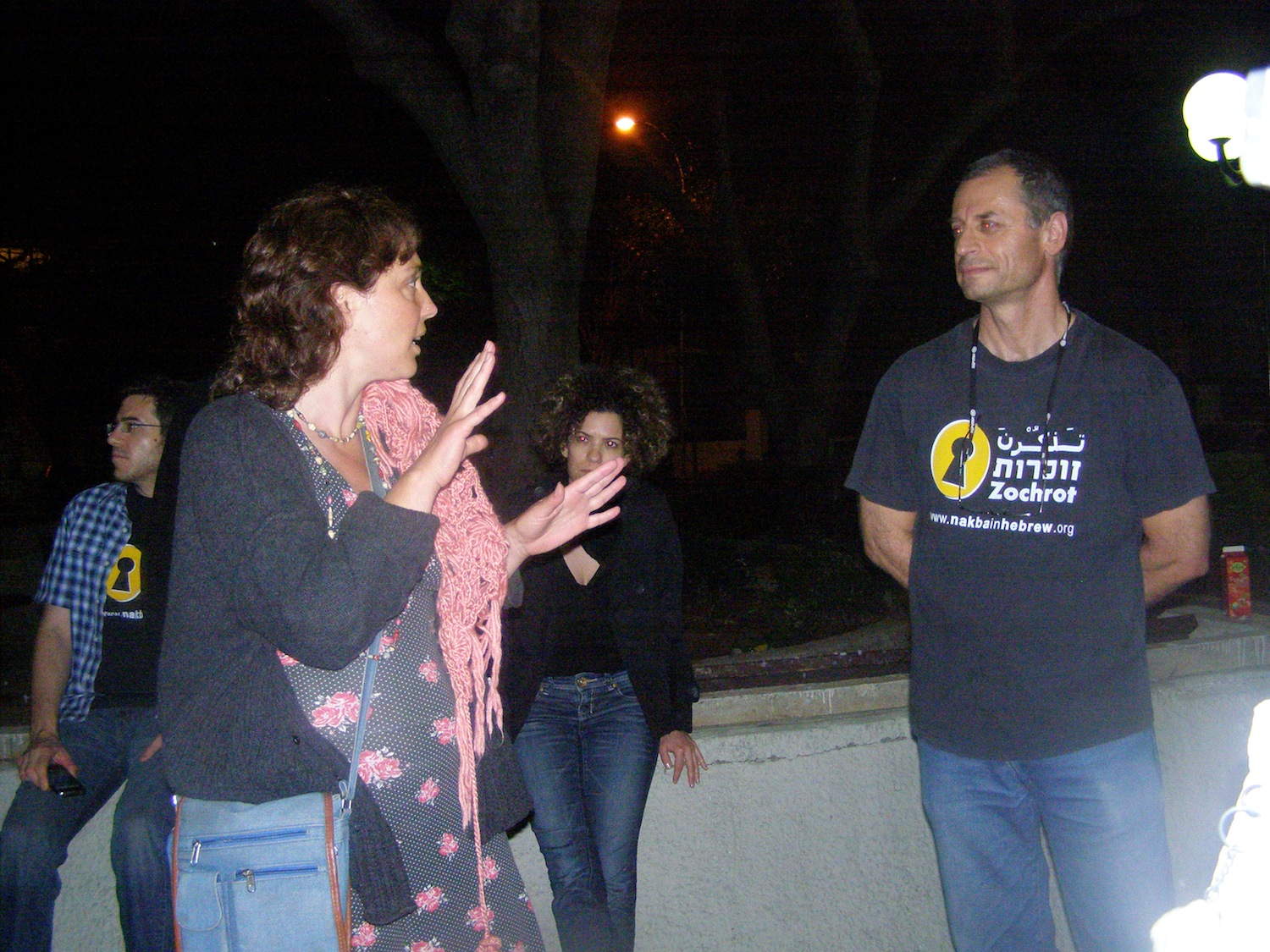
Nakba law protest TLV independence day 2011 (24)
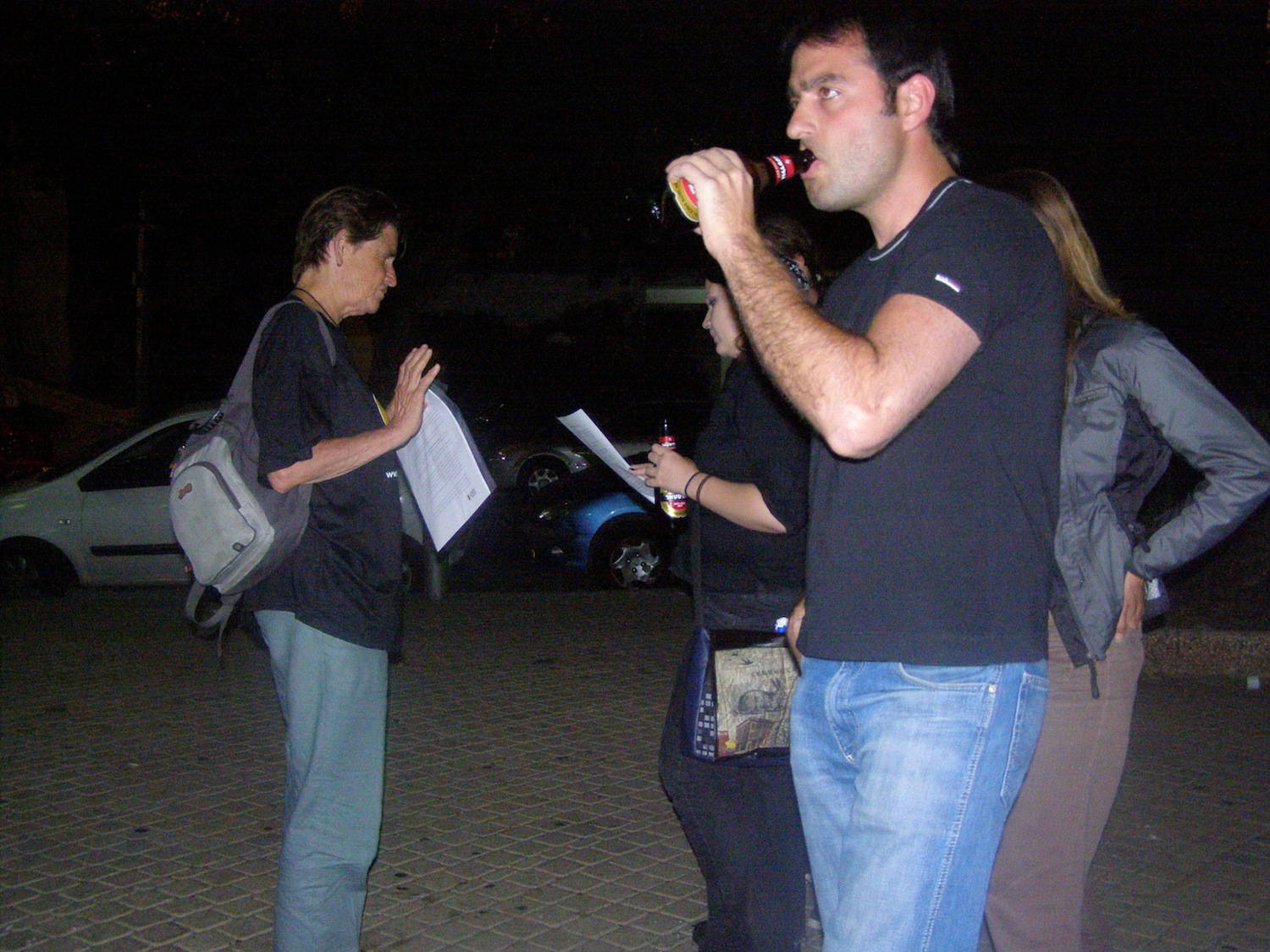
Nakba law protest TLV independence day 2011 (25)


